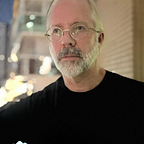Fixing Our Broken Knowledge Systems With the Unified Theory of Knowledge
Modern society is facing a huge set of problems. We are creating dangerous technologies, entering into a new digital world, damaging the planet, face debt/financial issues, climate issues, international conflict patterns and resource degradation and depletion. Additionally, we are also facing profound meaning and mental health crises. And we may not have long to right the ship before we sail into an irreversible state of global civilization collapse.
There are many reasons for our current state. But one deep and profound reason has to do with our knowledge systems. They are broken. Knowledge systems can be framed in terms of a set of basic features. For example, their foundational logical structure, the extent to which the representations within them correspond to reality, and the degree to which they are comprehensive and coherent, and the manner in which they connect to values and orient toward the future. Currently, society’s core knowledge systems are in a state of chaotic fragmented pluralism. In short, there is an massive overload of technical information from the sciences and from technology, coupled with a digital media structure that is flooding the system with bullshit. Science is not coherently organized and at the same time, it has revealed truths and epistemological frames that have “killed God” and left the traditional religious dual world interpretations unworkable for a large portion of society. As such, we are rudderless and without a coherent worldview that inspires meaningful engagement with life and the future. Consequently, we drift evermore toward foolishness and sin.
The fact that we live in a time of chaotic fragmented pluralism is freely available to those who look. But why is this the case? The Unified Theory of Knowledge (UTOK) diagnoses the core of the knowledge problem as the “Enlightenment Gap”. The EG posits that the nature of modern empirical natural science gave rise to an intersubjective objectivist account of matter in motion that could not be placed in coherent relation to the qualitive subject embodied in the real world, nor to the fact that human knowledge is historically situated and socially constructed. We can see the consequences of the EG in both the mind versus body problem and the modern versus postmodern philosophical positions on the nature of truth.
UTOK points further to the problem of psychology. This is the remarkable fact that, unlike physics, chemistry and biology, psychology completely lacks a clear ontological subject matter. This is because the modern science enterprise, as it was framed by the epistemological methods and ontological concepts of the European Enlightenment could coherently not put mind in the equation. One can also see a similar situation in the philosophy of mind literature, which is also incoherent. The problem of psychology is strong evidence for the EG which affords us a clear diagnosis of the logos problem we face. There are also deep pathos and mythos problems. That is, how do we live as embodied souls (pathos) collectively oriented toward a wise mythos?
The Unified Theory has helpful answers to all of these questions. Via the Tree of Knowledge System, it gives us a new map of Big History. For the first time, the ToK System allows us to see with clarity the actual contours of the Great Chain of Being, from Energy to Matter to Life to Mind to Culture with coherence. This is because it introduces us to the concept of planes of existence and the joint points that yoke them in a way that has been previously missed. The new descriptive metaphysics means we can shift to a coherent holistic scientific worldview. A key part of the reason why is that the ToK System defines the ontology of animal mental behaviors and human persons. Scientific knowledge systems have never been able to do this before because none have included the Life to Mind and Mind to Culture joint points.
With the ToK System, UTOK frames scientific knowledge; but UTOK also embraces the psyche, defined as the epistemic perspective taken by each unique idiographic qualitative subject. This is framed by the Coin and the Human Identity Function, which starts with each self-reflective person identifying themselves as a inside-out epistemic vector of being. Modern empirical science tried to eliminate this variable from consideration. UTOK sees clearly its place in our knowledge system and offers us a unique way to bridge our unique qualitative subjective perspective with a generalizable quantitative behavioral view of the cosmos.
With the Garden, UTOK also frames collective wisdom. It organizes science and the science of psychology and couples that to an analysis of professional psychology to frame character functioning and development and well-being and both the kinds of processes that drive neurotic suffering and the kinds of processes that reverse them into flourishing. Moreover, the Garden is designed to serve as an entry point into knowledge. Indeed, implicit in UTOK is the idea that we should we raise our children in “kinderGARDENS” and cultivate our lives accordingly.
The bottom line is that by solving the EG and the problem of both psychology and framing the relationship between general natural scientific psychology and the human subject and the social construction of knowledge in one system, UTOK affords us a profound shift in our knowledge systems. With it can move from the current state of chaotic, fragmented pluralism into a coherent integrated pluralism grounded in a naturalistic ontology that has the potential to revitalize the human soul and spirit in the 21st Century.
Post Script: Many thanks to Jonathan Rowson for his post to the Theory Of Knowledge Society list serve, which sparked this essay as a response to his help in suggesting that the problem of psychology was the problem of society.
